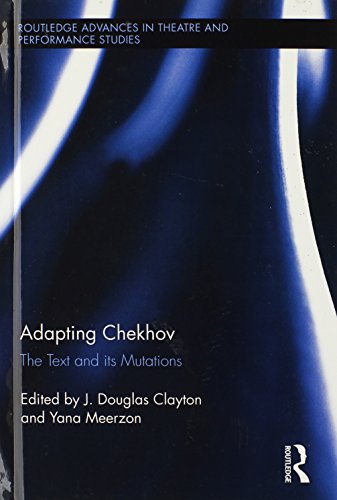

Most ebook files are in PDF format, so you can easily read them using various software such as Foxit Reader or directly on the Google Chrome browser.
Some ebook files are released by publishers in other formats such as .awz, .mobi, .epub, .fb2, etc. You may need to install specific software to read these formats on mobile/PC, such as Calibre.
Please read the tutorial at this link: https://ebookbell.com/faq
We offer FREE conversion to the popular formats you request; however, this may take some time. Therefore, right after payment, please email us, and we will try to provide the service as quickly as possible.
For some exceptional file formats or broken links (if any), please refrain from opening any disputes. Instead, email us first, and we will try to assist within a maximum of 6 hours.
EbookBell Team

5.0
110 reviewsThis book considers the hundred years of re-writes of Anton Chekhov’s work, presenting a wide geographical landscape of Chekhovian influences in drama. The volume examines the elusive quality of Chekhov’s dramatic universe as an intricate mechanism, an engine in which his enigmatic characters exist as the dramatic and psychological ciphers we have been de-coding for a century, and continue to do so. Examining the practice and the theory of dramatic adaptation both as intermedial transformation (from page to stage) and as intramedial mutation, from page to page, the book presents adaptation as the emerging genre of drama, theatre, and film. This trend marks the performative and social practices of the new millennium, highlighting our epoch’s need to engage with the history of dramatic forms and their evolution. The collection demonstrates that adaptation as the practice of transformation and as a re-thinking of habitual dramatic norms and genre definitions leads to the rejuvenation of existing dramatic and performative standards, pioneering the creation of new traditions and expectations. As the major mode of the storytelling imagination, adaptation can build upon and drive the audience’s horizons of expectations in theatre aesthetics. Hence, this volume investigates the original and transformative knowledge that the story of Chekhov’s drama in mutations offers to scholars of drama and performance, to students of modern literatures and cultures, and to theatre practitioners worldwide.